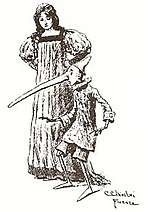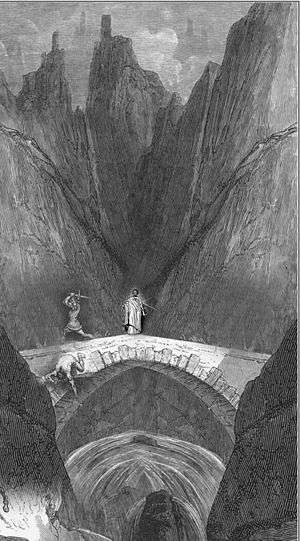Morton's fork
A Morton's fork is a type of false dilemma in which contradictory observations lead to the same conclusion. It is said to have originated with the collecting of taxes by John Morton.
The earliest known use of the term dates from the mid-19th century and the only known earlier mention is a claim by Francis Bacon of an extant tradition.[1]
Dilemma
Under Henry VII John Morton was made archbishop of Canterbury in 1486 then Lord Chancellor in 1487. He raised taxation funds for his king by holding that someone living modestly must be saving money and, therefore, could afford taxes, whereas someone living extravagantly obviously was rich and, therefore, could afford taxes.[2][1]
In some instances, such as Morton's original use of the fallacy, it may be that one of the two observations is probably valid, but the other is pure sophistry: evidence of possessing wealth may be genuinely irrelevant to having a source of taxable income.
In other cases, it may be that neither observation may be relied upon to support the conclusion properly. For example, asserting that a person suspected of a crime who is acting nervously must have something to feel guilty about, while a person who acts calmly and confidently must be practised or skilled at hiding guilt. Either observation therefore has little, if any, probative value, as each could equally be evidence for the opposite conclusion.
Examples
"Morton's fork coup" is a maneuver in the game of bridge that uses the principle of Morton's Fork.[3][4]
An episode of the television series Fargo is entitled "Morton's Fork", after the dilemma. It is also mentioned in NCIS Los Angeles season 5 episode 16, "Fish Out of Water."
See Also
References
- 1 2 "Morton's Fork". Oxford Dictionary of Phrase and Fable. Encyclopedia.com. Retrieved 12 September 2017.
- ↑ Morton's Fork. Oxford English Dictionary.
- ↑ Frey et al. (1976). The Official Encyclopedia of Bridge, p. 295. ISBN 0-517-52724-3.
- ↑ Gray, Robert. The Bridge World, March 1973


